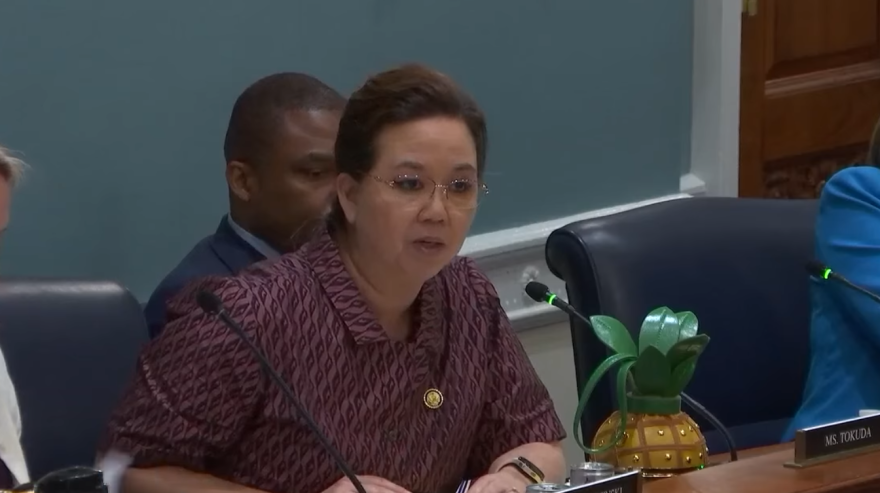U.S. Rep. for Hawaiʻi Jill Tokuda said a proposed $313 billion cut from the Supplemental Nutrition Assistance Program over the next decade will hurt working families, rural communities and millions of people across the country.
The House Agriculture Committee’s vote on the budget reconciliation bill this week was expected to cut around $230 billion from SNAP, formerly known as food stamps, as part of an effort by the Trump administration to cut federal spending — but the committee managed to exceed that.
“The federal government has always given us unfunded mandates. This is the biggest unfunded mandate that the federal government will ever hand down to states — $313 billion in SNAP cuts,” she said, adding that the cuts would be “taking food out of the mouths of hungry children, families, working people, seniors, veterans.”
The committee voted 29-25 along party lines to advance the bill.
The nonprofit Food and Research Action Center, in a release, said the Republican proposal “erodes the historic federal guarantee of food assistance, shifts costs to states unequipped to bear them, and ultimately increases hunger and hardship nationwide.”
SNAP is fully funded by the federal government, but the new bill would shift program costs to the states.
The proposal would require states to pay anywhere from 5% to 25% of food benefit costs, depending on the state’s error rate in distributing SNAP benefits — or how much they overpay or underpay benefits.
It would also force states to pay for more of the administrative costs to run SNAP. Hawaiʻi received about $730 million from the federal government for SNAP in 2023, and the state and federal governments both pay around $32 million in administrative costs.
Under the provisions of the new bill, Hawaiʻi would have to foot $15 million extra in administrative costs.
The reconciliation package also makes eligibility more difficult. FRAC noted that the Republican-backed bill would make SNAP eligibility more difficult by expanding work requirements and limiting caregiving and parent exemptions.

Tokuda is a member of two subcommittees within the House Agriculture Committee. She voted against the cuts and offered some of the 78 Democratic amendments for the bill, none of which were adopted.
She noted that one of her amendments aimed to ensure that SNAP cuts would not impact rural areas, where there is often an increased participation rate.
The committee debated the bill for 14 hours over two days, but Republicans abruptly ended it to call for a vote, leaving 44 of the 78 offered amendments without any discussion or consideration.
“This was not democracy in action. This was a very partisan approach to dealing with what, at the end of the day, will be the closest thing to a Farm Bill that we'll likely see,” Tokuda said.
The federal Farm Bill contains funding for farmers and food programs, though it is mostly made up of funds for SNAP.
Soon after the November elections, Republicans and Democrats were working together to come up with a bipartisan Farm Bill. The partisan nature of the votes in the Agriculture Committee this week could mean the end of that collaborative effort.
“This honestly has eliminated any chance that we're gonna be able to see a bipartisan Farm Bill passed,” Tokuda said.
Republicans said SNAP needed an overhaul because of the errors in payments, and the “ballooning” costs of the program, which the Agriculture Committee said increased from $60 billion to $100 billion annually since 2019, and overuse by “able-bodied” adults who aren’t working.
They said they want to reinvest that money into local agriculture. However, Democrats argue that the SNAP funding will help fund tax breaks for the wealthy.
Hawaiʻi Public Radio exists to serve all of Hawai‘i, and it's the people of Hawai‘i who keep us independent and strong. Help keep us strong to serve you in the future. Donate today.







